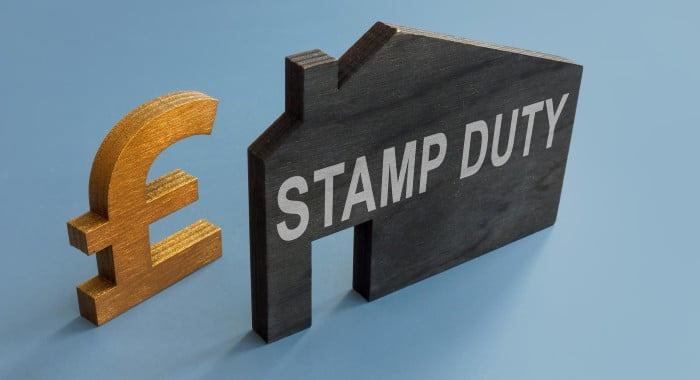There are many reasons why someone will consider selling a property to a family member at below market value – but this kind act can have a sting in the tale with a hefty tax bill if you don’t take the appropriate steps.
While it is absolutely legal to sell your house under market value to a family member, or anyone else for that matter, there are some things to consider.
That’s because there may be tax and other implications, usually legal, should you decide to sell or buy a house at below its market value.
There are many reasons why you might consider selling a property to a family member at below market value. But if you want to do this, we would recommend that you seek legal advice before you do anything.
In this article, we will explain what the pitfalls are and what to consider if you want to go down this route, but it doesn’t constitute legal advice and should not be taken as such.
Tax implications when selling a property to a family member at below market value
Selling a property for less than the market value can have tax implications for you as the seller as well as the buyer. If you are planning to sell your home to a family member at below market value, you should be aware that the following taxes might be due:
- Inheritance Tax (IHT)
- Capital Gains Tax (CGT) – in certain circumstances
- Higher Stamp Duty Land Tax (SDLT) for buyer
In order to ensure that you fully understand any tax implications and aware of any tax you might have to pay we would strongly advise you to speak to a tax professional or HMRC before you go ahead with the sale.
Inheritance Tax

If you sell a property to a family member for less than market value, the difference between the price you have agreed, and the market value is considered a ‘gift’.
As an example, if your home is worth £200,000, and you decide to sell it for 150,000, for whatever reason, means there’s a £50,000 ‘gift’ involved.
If you, as the seller, die within 7 years of the sale, this gift will be considered as part of the inheritance, and IHT will be due. Inheritance tax is normally paid by the estate of the deceased, unless the threshold has been reached within the seven years before the death, then the receiver of the gift has to pay for the tax.
The government’s website about inheritance tax gives more information about thresholds, allowances and rules.
For those worried that they’ve been gifted a property or substantial equity in a property, and the person who gave them it has passed away within the seven-year limit, then whoever received that gift will need to pay inheritance tax.
It’s important that you get appropriate advice on this from a tax professional before you finalise the sale of your property.
Capital Gains Tax
If the property you are planning to sell to a family member under market value is not your main residence, then you will still have to pay CGT. Usually, you have to pay tax on the difference between the amount you bought the house and what sold it for.
However, what’s important to note here is that if you sell the property for less than what it’s worth, the CGT will be calculated using the market value at the time of the sale.
There are other circumstances when CGT doesn’t apply when selling a home: you can find out more on the government’s website.
Speak to a tax professional to find out if CGT would apply for the sale and how much you would have to pay.
Stamp Duty Land Tax

Your family member to whom you sell the property might have to pay Stamp Duty Land Tax. There are thresholds from when this tax applies.
However, what your buyer has to consider is that the tax will be calculated based on the market value of the property, not the sales price.
So selling a property to a family member at below market value won’t reduce the amount of stamp duty they pay.
This is an important consideration for the buyer and should be kept in mind. We would advise discussing this with a solicitor before signing any contracts.
Legal implications when selling a property for less than market value
There might also be legal implications if you want to sell your home for a lower price than its market value. It could be seen as there’s potentially a deliberate undervalue which could lead to implications that a legal expert can explain.
If you’re looking to sell a property at less than it’s worth to avoid paying care home fees then you may find that the local authority takes a closer look at the transaction – and they may go back several years to see whether you have deliberately tried offloading assets to save on care costs.
It is vital that you seek professional advice from an experienced solicitor to understand all the legal implications of selling a property under market value.
Some homes that have sales restrictions

On top of this, while the seller may own the property, there are some homes that have sales restrictions on them. This means they cannot be gifted, for example, a retirement home.
It’s important you check the title to the property before proceeding. If your home has sales restrictions, then it might not be possible to sell it for below market value.
There might be ways to remove the restrictions, if they stand in your way. However, trying to get them removed will involve costs and take time.
So if you check the title deeds to your property and find out there are restrictions, seek advice from a solicitor.
Steps to protect the seller when dealing with a family member

Wether you sell to a family member of someone you don’t know, it’s vital that you take the right steps to protect yourself.
It’s important that regardless of your relationship with whoever is buying your property that you both have separate lawyers, so there’s no conflict of interest. This will be in your best interests and ensure that you receive independent advice.
A good solicitor won’t accept both you and the buyer as clients anyway. Although you might be able to use the same firm, but different solicitors.
Both you and your family member should treat the sale like any property sale. This means your family member should have a survey of the property done. And also conduct any relevant searches to see if there are any implications from unknown planning permissions, for example, which may affect the property’s future.
If you want to avoid a hefty tax bill and should you own the property outright then you could gift it to a family member at any time and still remain in it.
However, you’ll need to survive for seven years after making the gift to be exempt from inheritance tax. You will also have to pay rent, which has to be at the going rate and not below. You will also have to pay your share of the utility bills and live there for at least 7 years.
One of the big issues, as hinted at earlier, is to be accused of the ‘deliberate deprivation of assets’ after the property has been gifted to a family member.
Some may do this to avoid paying care fees as they grew older, but legally, the local authority can transfer the property back into your name should they decide that this original move was done to avoid care home fees.
As we mentioned earlier, this can be a legal minefield, so professional advice will be a sound investment.
If your family member needs a mortgage to buy your home, it’s worth knowing that not all lenders will agree to lend for transactions between family members. So speaking to a mortgage broker could be a good idea.
Selling a property at a discount to your children or other family members

It could be tempting to sell a property at a discount to your children or other family members and some people may opt to sell for as little as £1.
Should you own the property, then there’s no restriction on how much you have to sell it for, since it’s yours to put a price on.
Should there be a mortgage outstanding, then this will need to be paid off before ownership of the property can be transferred. In some cases, this may mean having to take out a separate loan to cover the mortgage cost.
There are benefits when selling a property to a family member and one of them enables the person buying the house to reduce their stamp duty bill if the property is being gifted under exception rules.
Essentially, the stamp duty tax is calculated on the purchase price and the balance is considered to be a gift. However, in that case IHT might become applicable.
It’s important that you discuss this with your solicitor to ensure you understand any implications of selling a property to a family member at below market value or at a huge discount.
Selling A Property? FREE Step-By-Step Platform
Lease Option

One way to avoid tax bills and complex legal processes is the lease option. This makes selling a property to a family member at below market value easier. By using the lease option you don’t sell your home directly to your family member.
You rent it out to them for a set period of time. They will have to pay you rent and also an agreed additional fee that counts as a down-payment.
When the set time period has passed, the family member will have the option to buy the house. You can set a sales price at the start, which means the price won’t be affected by inflation or rising house prices.
This way there won’t be any IHT payable and the legal procedures are simpler. However, it is still advisable to consult a solicitor if you want to go down this route to ensure everything is arranged appropriately.
A solicitor will also be able to explain all implications to you and your family member.
Selling your home to a family member
Essentially, while selling your home to a family member may reduce the overall transaction costs such as legal fees and estate agent fees, you do leave yourself liable to other taxes and financial implications if you do so.
It is vital to consult a solicitor if you are planning on selling a property to a family member at below market value before you do anything else.
A legal professional will be able to explain all the pitfalls and implications and can help you find the best solution for you and your family member.
This article is for information purposes only and does not represent legal or financial advice, and you should always seek professional advice from those qualified to do so if you are looking to sell your home to a family member.





